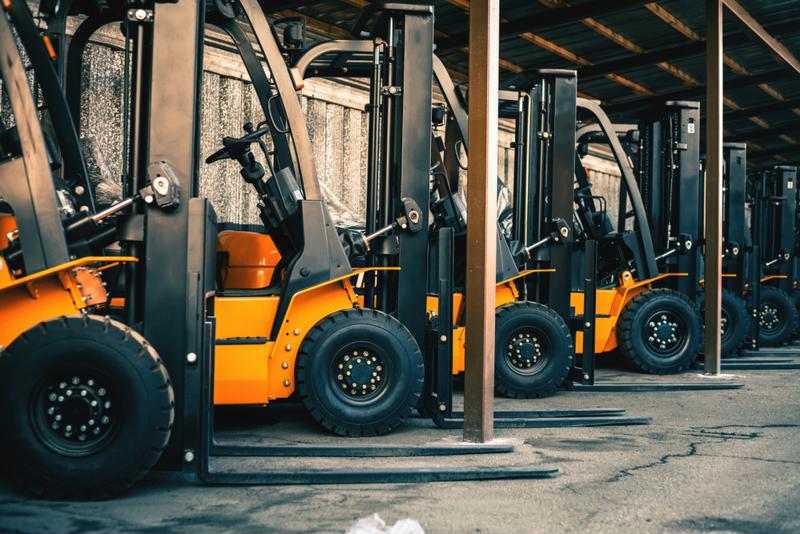Forklift batteries are the power sources that propel productivity at your facility. Without a full fleet of functional forklift batteries, your employees won't have the ability to move as much product as your facility is set up for.
For this reason, having a strategic battery management system is essential. Maintaining, organizing and utilizing batteries in the best ways possible will save time, money and space.
At NMS, we believe that having a computerized management system is the best way to increase efficiency and uptime within your business. Click here to learn more about how to use a CMMS (computerized maintenance management system) to manage your equipment data.
 Creating a battery maintenance schedule can help reduce the chances of forklift failure.
Creating a battery maintenance schedule can help reduce the chances of forklift failure.
Basic battery maintenance
Most facility managers have a good idea of what it takes to maintain their current batteries:
- Weekly maintenance should include watering and equalizing.
- Add water to a battery is after it's fully charged.
- Only use distilled water. Water from the tap may have impurities that affect electrolyte balances and the battery's life span.
- Facility managers need to schedule battery equalization periodically to minimize sulfate buildup in the battery, which can lower its effectiveness.
Light sensors
A clear maintenance schedule ensure that forklifts are properly taken care of, but adopting new technologies into your facility can alert you to issues you may not have noticed until your next battery maintenance day.
Sensors can monitor water levels, for example. When levels are low, a light blinks to alert an operator that the battery needs attention. Simple systems like these can be helpful, but they require as much attention as the equipment they help monitor. There is room for error with some systems; sometimes condensation on the sensor can give an incorrect water level reading, according to Modern Materials Handling.
Battery data management
Battery management systems have evolved into highly complex systems. When used properly, they can go a long way in ensuring all forklifts have access to a functional battery. They can also alert facility managers to issues that require spare parts, battery replacement or another type of maintenance activity.
Collecting data on battery usage, frequency of maintenance and related mechanical issues can provide good insight into a facility's capabilities and needs, but it will benefit the business only if someone is able to analyze and interpret the information, then turn it into an actionable maintenance plan.
By working with an on-site technician who's in charge of monitoring equipment and performing maintenance as needed, facilities can be confident that battery maintenance is in good hands. These technicians also carry spare parts in case of emergency replacements. Whether a particular vehicle needs battery maintenance, repair or replacement, these maintenance experts will have the knowledge needed to install, charge, water and equalize batteries.
To learn more about the benefits of having an embedded tier 1 technician at your worksite to keep track of all maintenance schedules, reach out to NMS.

